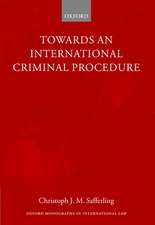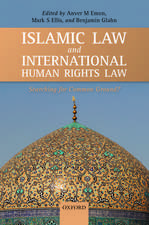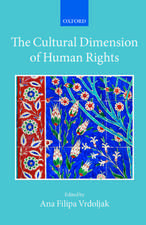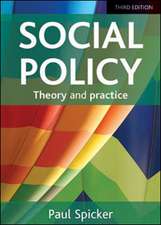Independence of Mind
Autor Timothy Macklemen Limba Engleză Paperback – 7 feb 2008
| Toate formatele și edițiile | Preț | Express |
|---|---|---|
| Paperback (1) | 278.46 lei 31-37 zile | |
| OUP OXFORD – 7 feb 2008 | 278.46 lei 31-37 zile | |
| Hardback (1) | 321.84 lei 31-37 zile | |
| OUP OXFORD – 16 noi 2006 | 321.84 lei 31-37 zile |
Preț: 278.46 lei
Preț vechi: 309.99 lei
-10% Nou
Puncte Express: 418
Preț estimativ în valută:
53.28€ • 55.64$ • 43.100£
53.28€ • 55.64$ • 43.100£
Carte tipărită la comandă
Livrare economică 04-10 aprilie
Preluare comenzi: 021 569.72.76
Specificații
ISBN-13: 9780199535446
ISBN-10: 0199535442
Pagini: 208
Dimensiuni: 156 x 234 x 13 mm
Greutate: 0.32 kg
Editura: OUP OXFORD
Colecția OUP Oxford
Locul publicării:Oxford, United Kingdom
ISBN-10: 0199535442
Pagini: 208
Dimensiuni: 156 x 234 x 13 mm
Greutate: 0.32 kg
Editura: OUP OXFORD
Colecția OUP Oxford
Locul publicării:Oxford, United Kingdom
Recenzii
This is a most worthwhile book, and Macklem brings his distinctive insight and voice to the questions he takes up. Macklem is right that the question of the 'philosophical grounding of our most fundamental political freedoms' has been oddly neglected, even as analyses of these freedoms have multiplied. Macklem's perspective on many of these questions is genuinely novel, which is rare given how much ink is spilled on some of these topics. The book will warrant the sustained attention of legal philosophers and philosophically minded lawyers. That is true of very little that is written on these issues.
This impressive addition to the literature on freedom enriches our understanding of the work done by liberties such as religion, speech, conscience, and privacy. Going beyond the familiar idea that the fundamental freedoms protect people's ability to pursue and express their deep personal, political, and religious commitments, Macklem suggests that these freedoms also help create the conditions in which we can develop these commitments and make them our own.
This impressive addition to the literature on freedom enriches our understanding of the work done by liberties such as religion, speech, conscience, and privacy. Going beyond the familiar idea that the fundamental freedoms protect people's ability to pursue and express their deep personal, political, and religious commitments, Macklem suggests that these freedoms also help create the conditions in which we can develop these commitments and make them our own.
Notă biografică
Timothy Macklem is Professor of Jurisprudence at King's College, London














